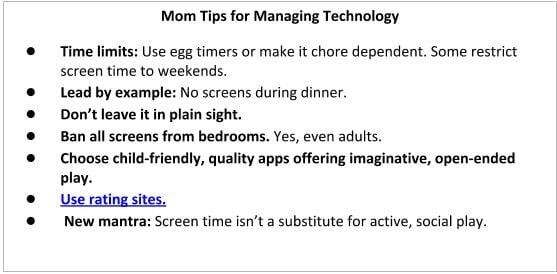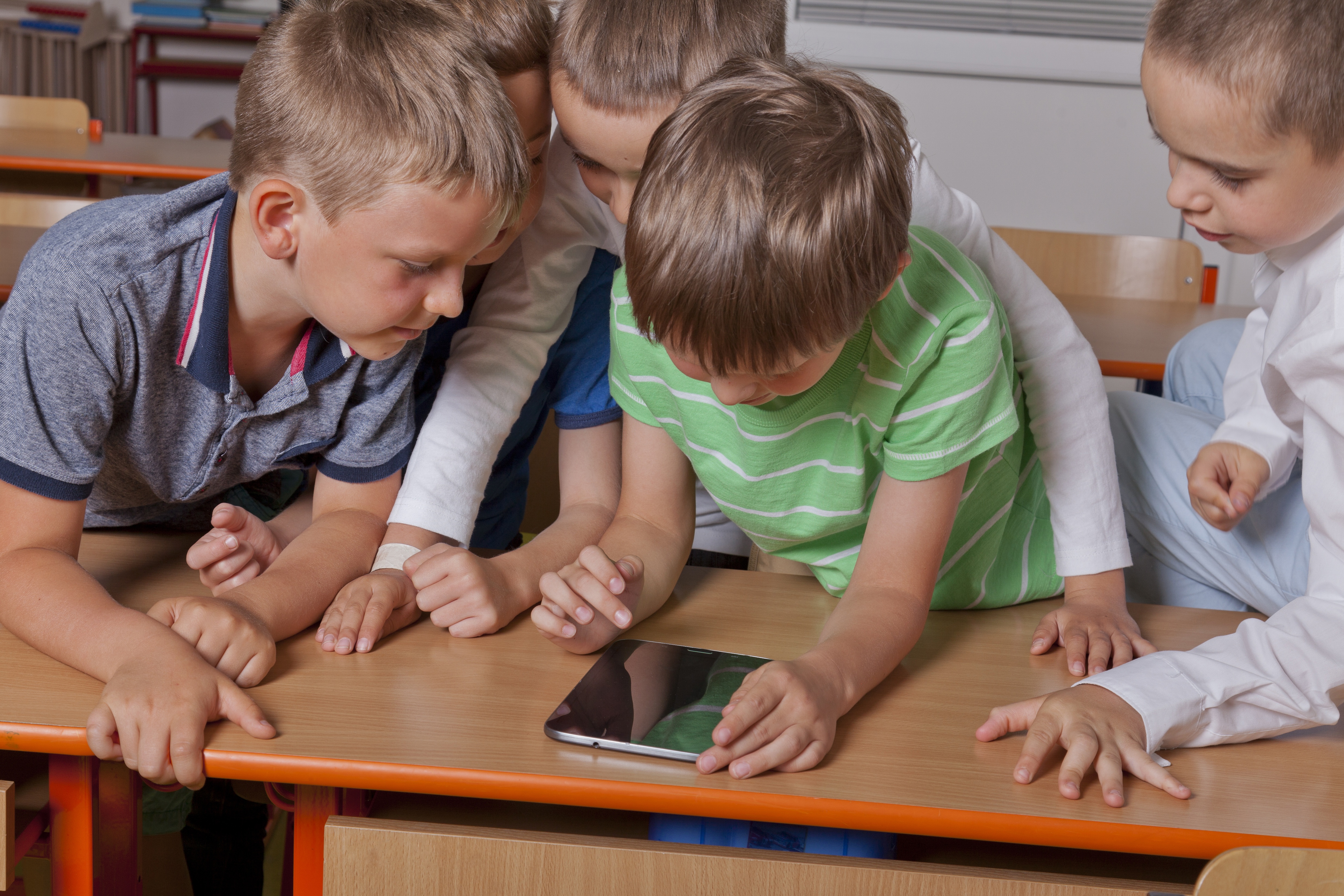My children are digital natives; two children share a dumb phone and one owns a smartphone. There’s an old PC running Linux, that’s the homework (and “resuurch” station) and there’s our tablet.
And it’s funny, because when tablets first came out the notion of handing it to a mucky pup toddler sounded crazy. First, it was business only; then, wow, this would be great for special needs followed by road trips and toddlers. In contrast, I called my friends on a rotary phone and I had a Walkman.
Chelsea Clinton, a contemporary, CNN (2012) specified: “By the time our kids are two years old, more than 90 percent have some kind of online presence and by five years old more than 50 per cent use computers or tablet devices.” More recently, various articles went viral, indicating that technology is digital heroin for children. That’s scary, right? But I’m not the only one who thinks that smacks of scaremongering.
For our purposes, we’re assuming low online presence and focusing on screen time. It’s important to be balanced for many reasons; not least because technology is inescapable, selfies, however, are inexcusable. Take that pout off your face young lady.
Curtsy and Courtesy to the Challenges
- Studies link negative health outcomes to screen time. While studies have linked obesity, sleep disorders, poor posture, vision issues and wrist pain to screen time, it’s much harder to make the causal link for ADHD. Limit their screen time and yell at them to get outside.
- Tablets strengthen adjustment to visual cues but may neglect other senses. Bring out the Play-Doh and yell at them to get outside for trampoline and water play.
- Zombie-like behavior: See above yelling mantra. I don’t think cognitive function is affected, selective hearing may come into play though. They may temporarily lose the ability to forage in your kitchen safari but if you say you’re ordering pizza, boy do they come out their funk.
Take Your Bow, Benefits
- Tablets are interactive, engaging and increase opportunities: There’s an increasing amount of educational app content designed for children. YouTube clips or apps can be used to build skills, learn languages, conduct science experiments or create something beautiful for Mother’s Day. Children are natural autodidacts and left to their own devices, pun intended, with the right tools they are empowered to produce “encouraging results.”
- No messy paints: You’d rather they were playing with Lego, but fun skill-building apps are appropriate to various situations, as there’s only so much messy we can take on a rainy day or 41 degrees-hades-in-the-shade days. You can learn colors with apps or Lego, but the parent needs to be present for the latter.
- A different kind of creativity:
Technology allows for the exploration of virtual worlds where children can confidently build and expand, allowing for endless possibilities, unlike Lego, which is is finite and pricey. Children using Minecraft venture forth, even if they aren’t normally adventurous in real life, and can view creations from all angles or experiment with different combinations without cracking open any raw material.
Look at the research and attention to detail that went into this labor of love and competition winner. There’s a skill set here that speaks of excellent collaborative skills, quality problem solving and sheer creativity.
What will your explorer research and create in your “resuuuch” corner?








